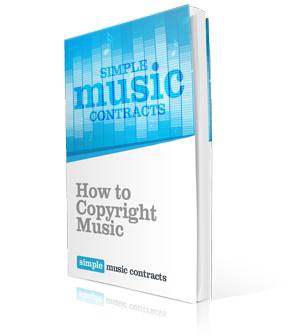 A music industry contract is nothing less than the Holy Grail for musicians. However, its complexity keeps the musicians in dark and they decide to keep themselves away from even the basics of contracts and agreements. Unfortunately, this ignorance of theirs leads them to the world of chaos.
A music industry contract is nothing less than the Holy Grail for musicians. However, its complexity keeps the musicians in dark and they decide to keep themselves away from even the basics of contracts and agreements. Unfortunately, this ignorance of theirs leads them to the world of chaos.
In order to help you understand and navigate the music industry, we have collected little details that you must go through before getting a contract. To begin with, you need to understand the different types of contracts.
 Here are the most important and common contracts that you are likely to get into in the future:
Here are the most important and common contracts that you are likely to get into in the future:
Different Types Of Music Industry Contracts
1. Project/band contract
The kind of contract you should enter depends on the type of work you want to do. For instance, if you are not a soloist, you should go for brand contracts. Some of the terms you might need to be aware of would be Distribution of income, band name rights, distribution of jobs, and withdrawal of band members, insurance, fatality, and possession of instruments.
2. Contract with publishers and collection societies
This contract is especially for lyricist and composers. All you should do is get in contact with the local collection society under the contract of Assignment. GEMA, SUISA etc. takes the custody of the song, collects the payments and keeps merely 10% of the price. Eventually, you get quite a fair percentage of the profit.
3. Transfer of rights to musicians
If you are to hire musicians from outside, better get into a contract that authorizes the “transfer of rights”. The main idea behind this contract is to get to use the performances just the way you want. It also helps in regulating the profit sharing and fees.
4. Record deal
A classic record deal is your thing if a label is interested in your work. The great part of this deal is the label will take care of everything starting from the manufacturing to the marketing of the label. Some of the major parts covered by the record deal are Volume, Exclusivity, Format, Production, Sub-license rights, Sync and Merchandising rights.
5. Distribution contracts
Distribution contracts are between distributors and record labels. With this “Distribution Contract,” you are not bound to transfer all or any right to the recording; instead you give a particular right to the partner shop of the distributor.
6. Producer and remix contract
The producer and remix contract is made directly between the major labels and the producer. The responsibility of the royalties and their affiliated compensation are bound by this contract. Further, if you are making external remixes, it includes one-off payment for the commission plus transfer of rights, royalty shares, and adaption rights.
7. Administration Contract
The administration contract gives an exclusive right to the publisher to administer the composition for a specific period of time. This includes collecting royalty for DVDs, and the song used in TVs, and commercials. Almost 25% of the earning goes to the publisher under the administration act.
So, these are the types of agreement that you one day would be getting into. Using these contracts you can be sure of controlling all the three variables of an exclusive music contract. Those three music variables would be The Property, Extent, and Money.
• Property directs towards the person who owns the copyright and the details of the field covered by this copyright.
• An individual contract can hold many person with different rights. Extent refers to the details of those rights. Like who has the issued license and for how long.
• Not to forget a contract is all about Money, which can have different faces like Advances, Fees, Costs, and Royalty Splits.
The initial deal gets you a small percentage of royalty; subsequently, it takes you a step toward fame and glory. There have been singers like Michael Jackson, R.E.M, Janet Jackson, and Madonna who have signed multi-million dollar deals till date.
In a very interesting line of events, one of the famous singers Whitney Houston signed a $100 million deal over just six albums. There are more such cases in case you want to know about.
The next important episode of any contract is how it is going to end. Even though a good beginning means a lot, we cannot forget the phrase; all is well that ends well. In order to make sure that you get what you deserve and can be able to get out the deal as and when needed, here are a few things to keep in mind.
Legal Tips to Safeguard Your Music Industry Contract
• Get it all written
Even if you are getting into a contract, there would be points that you might consider so insignificant to be on paper. Let’s warn you that the next party that you are dealing with is always looking for that loophole. A handshake deal is always tempting, but to prevent ugly disputes in the near future avoid verbal promises. Make sure you have every little detail of the contract mentioned on the legal front.
• Don’t take legal advice from the opposite party
Musicians are always found to be naïve about legal deals, which leads to exploitation of their talent. Even if you trust the person in front, do not depend on their legal advice. Take your time to understand the terms and conditions then only nod for it.
• Don’t settle for accountants and standard lawyers
Music law is an exclusive arena which needs specialization on its own. If you seek legal advice, better go for the experts. Do not settle just for accountants and standard lawyers as music laws can be difficult to understand. Chose an advisor who understands the laws well and looks into every nook and cranny for loopholes.
• Make an easy way out
A contract should bind both the parties with a fair exchange of benefits. If the other party doesn’t live to its obligation, you should have a clear way out of your deal. To make the deal both safer and beneficial it’s imperative to add a release commitment in the contract.
Standard Music Industry Contract Terms
To make the acknowledgment of the contract easier, here we have a list of terms. Some of those terms are:
Writer’s Obligation: The term refers to the number of songs a writer should deliver to the publisher.
Assignment of rights: It’s the assignment of copyright of music from the writer or singer to the music publisher. If the copyright is infringed the publisher can take legal action against the writer or singer.
Publisher’s commitment: The commitment of publisher towards the writer or the singer is called publisher’s commitment.
Right to return copyrights: This is the most complex term of the contract, which abides the publisher to give back the copyright in case of commercial failure after a certain period of time.
Advance, royalties, and recoupment: It will set the royalty rate, the quantum of any advances, and the definition of royalty base.
Audit provisions: The audit clause allows the artist to ensure accurate accounting from the end of the publisher.
Jurisdiction: This clause recites the law that governs the contract.
Now that you are aware of the contracts and the rights it gives you and the publishers, you can proceed towards the first big deal of your life.

